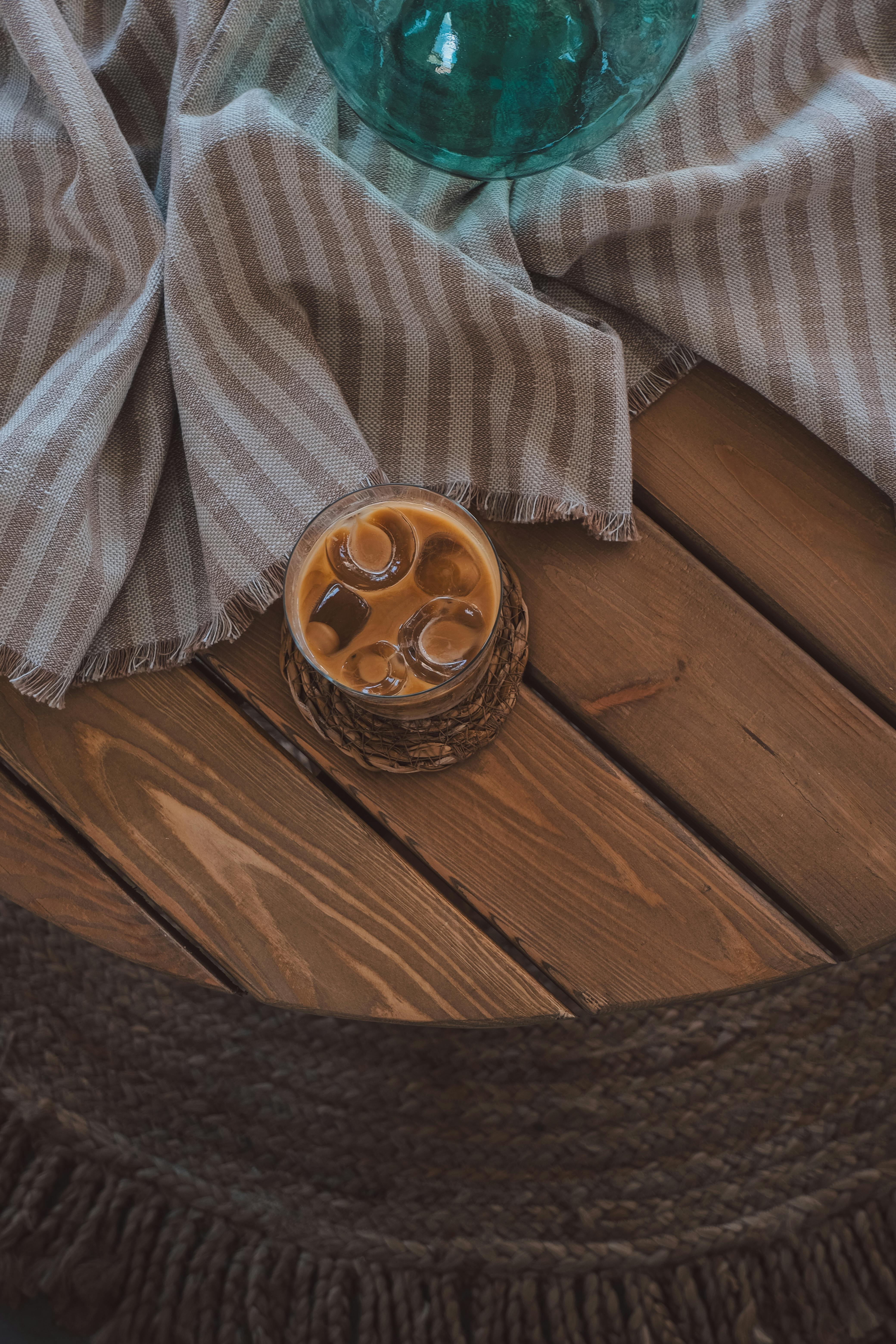Stay Awake and Sleep Like a Baby: Coffee Hacks You Need to Know!
So you’re a coffee lover, huh? Don’t worry, we’ve all been there – savoring that rich, aromatic cup of joe, only to find ourselves tossing and turning at night, unable to fall asleep. But fear not, because we’ve got your solution! In this article, we will explore some effective tips and techniques to help you wind down and catch those much-needed Zzz’s after indulging in your beloved coffee. Get ready to discover the secrets to a restful night’s sleep, even after a caffeine-filled day!
Factors affecting sleep after drinking coffee
Caffeine content and its effects
The amount of caffeine in a cup of coffee can vary depending on the type of coffee and the brewing method. Caffeine is a stimulant that can make it difficult to fall asleep and stay asleep. It works by blocking the action of adenosine, a neurotransmitter that promotes sleep. The effects of caffeine can last for several hours, so it’s important to be mindful of the timing of your coffee consumption.
Individual sensitivity to caffeine
Everyone’s sensitivity to caffeine is different. Some people may be able to consume a cup of coffee in the evening and still have no trouble falling asleep, while others may find that even a small amount of caffeine disrupts their sleep. It’s important to pay attention to how your body reacts to caffeine and adjust your coffee consumption accordingly.
Timing of coffee consumption
The timing of your coffee consumption can greatly affect your ability to fall asleep. It’s best to avoid consuming coffee late in the evening or close to bedtime. Caffeine takes about 30 minutes to reach peak levels in the bloodstream, so it’s recommended to finish your last cup of coffee at least 4 to 6 hours before you plan on going to bed.
Preparing for sleep after coffee
Finish your last cup early
To avoid the stimulating effects of caffeine interfering with your sleep, it’s best to finish your last cup of coffee early in the day. This will give your body enough time to metabolize the caffeine before bedtime. If you usually have multiple cups of coffee throughout the day, gradually reduce your intake and try to consume your last cup no later than mid-afternoon.
Avoid additional sources of caffeine
Coffee is not the only source of caffeine. Many other beverages and even certain foods contain caffeine, such as tea, soda, chocolate, and some medications. It’s important to be mindful of these other sources of caffeine and limit your consumption, especially in the hours leading up to bedtime.
Create a conducive sleep environment
Creating a conducive sleep environment can help promote relaxation and better sleep, even after consuming coffee. Make sure your bedroom is dark, quiet, and cool. Use blackout curtains or an eye mask to block out any light, and consider using earplugs or a white noise machine to drown out any sounds that may disturb your sleep. Use comfortable bedding and invest in a quality mattress and pillow that provide good support for your body.

This image is property of images.pexels.com.
Relaxation techniques for better sleep
Deep breathing exercises
Deep breathing exercises can help calm the mind and relax the body, making it easier to fall asleep after drinking coffee. One simple deep breathing technique is to inhale deeply through your nose for a count of four, hold your breath for a count of four, and then exhale slowly through your mouth for a count of four. Repeat this several times until you feel more relaxed and ready for sleep.
Progressive muscle relaxation
Progressive muscle relaxation is a technique that involves tensing and then gradually releasing different muscle groups in the body. Start by tensing the muscles in your feet and then slowly work your way up to your head, focusing on each muscle group and releasing any tension you may feel. This can help promote a sense of physical and mental relaxation, making it easier to fall asleep.
Yoga or stretching
Engaging in gentle yoga or stretching exercises can help relax the body and relieve any built-up tension. There are specific yoga poses and stretches that are known to promote better sleep, such as child’s pose, forward fold, and legs-up-the-wall pose. Incorporating these exercises into your bedtime routine can help prepare both your body and mind for sleep.
Natural sleep aids
Herbal teas
Herbal teas have been used for centuries as natural remedies for sleep disorders. Chamomile, lavender, and valerian root are some of the most popular herbs known for their calming and sleep-inducing properties. Drinking a cup of herbal tea, such as chamomile tea, before bed can help relax your mind and body, making it easier to fall asleep after drinking coffee.
Aromatherapy
Aromatherapy involves using essential oils to promote relaxation and better sleep. Lavender, bergamot, and ylang-ylang are some of the essential oils known for their calming effects. You can add a few drops of these oils to a diffuser or even dilute them in a carrier oil and apply them topically before bedtime. The soothing scents can help create a peaceful atmosphere and prepare your body for sleep.
Meditation
Meditation is a practice that involves focusing your attention and eliminating the stream of thoughts that may be keeping you awake. There are various meditation techniques that can be helpful for promoting better sleep, such as mindfulness meditation and guided imagery. Find a quiet and comfortable space, close your eyes, and let go of any thoughts or worries. Focus on your breathing or visualize a peaceful scene to help calm your mind and prepare for sleep.

This image is property of images.pexels.com.
Other strategies to promote sleep
Establish a bedtime routine
Having a consistent bedtime routine can signal to your body that it’s time to unwind and prepare for sleep. Establishing a routine that includes relaxing activities can help signal the brain to release sleep-inducing hormones. Consider incorporating activities such as reading a book, taking a warm bath, or practicing relaxation techniques into your bedtime routine.
Limit exposure to electronic devices
The blue light emitted by electronic devices, such as smartphones, tablets, and computers, can suppress the production of melatonin, a hormone that regulates sleep-wake cycles. It’s best to limit exposure to these devices at least 1 hour before bedtime. Instead, engage in calming activities such as reading a book or listening to soft music to help promote better sleep after drinking coffee.
Avoid heavy meals before bed
Eating a heavy meal close to bedtime can make it difficult to fall asleep as your body works to digest the food. It’s best to avoid consuming large, heavy meals at least 2 to 3 hours before bed. If you find that you need a snack before bed, opt for light and easily digestible options such as a small bowl of cereal, a piece of fruit, or a handful of nuts.
Consulting a healthcare professional
Seeking medical advice
If you consistently have trouble falling asleep after drinking coffee or if your sleep disturbances are affecting your daily life, it may be beneficial to seek medical advice. A healthcare professional can assess your individual situation and provide personalized recommendations or treatments to help improve your sleep.
Exploring alternative solutions
In some cases, alternative solutions may be recommended to address sleep issues after consuming coffee. These can include reducing or eliminating caffeine intake, trying different relaxation techniques or sleep aids, or exploring other underlying factors that may be contributing to sleep disturbances.
Tracking sleep patterns
Keeping a sleep diary or using a sleep tracking app can help you gain insight into your sleep patterns and identify any trends or triggers that may be affecting your sleep after drinking coffee. Tracking the amount of caffeine consumed, the times of coffee consumption, and your sleep quality can help you and your healthcare professional make informed decisions regarding your sleep habits.

This image is property of images.pexels.com.






